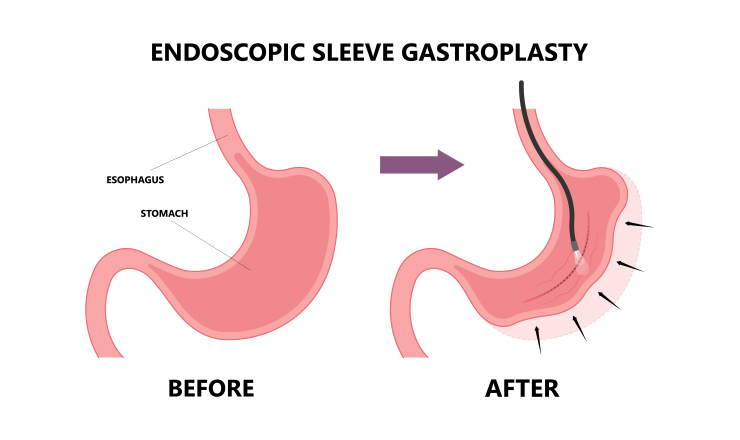Mail Us
info@getweightloss.in
Call Us
+91 - 81212 00600
info@getweightloss.in
+91 - 81212 00600
info@getweightloss.in
+91 - 81212 00600

Are you someone who is in a constant battle between gaining and losing weight? It’s hard, isn’t it? We understand that weight management can be hard, especially considering that there are various diets and workout routines out there. Not to mention, the market is also filled with weight-loss supplements that have nothing but a placebo effect. If you are someone in the same shoes, then you are not alone.
Did you know that we have 135 million obese individuals in India? And this number will snowball in the coming years. Now that’s something to worry about. However, have you ever noticed how some people can easily lose weight while others struggle to do so? There is only one culprit for this problem. The answer may lie in our hormones.
In this blog, we will dive deep into the world of weight loss and hormones. At the end, we will also talk about a very simple yet effective way to lose weight without the intervention of surgery and why it is a game-changer for many.
Hormones are the body’s messengers, regulating various processes, including metabolism, hunger, and fat storage. When your hormones are out of balance, it can lead to weight gain and make it challenging to shed those extra kilos.
Hormones are nothing but body’s messengers. There main function is to regulate various processes – metabolism, hunger, and fat storage. It is important for them to be balanced, however, when they aren’t, it can lead to many issues, like weight gain.
Ghrelin: The Hunger Hormone:
Everyone feels hungry, but which hormone is responsible for it? It’s ghrelin, also called the hunger hormone, that stimulates the appetite. In cases where this hormone is high, one can feel quite hungry, which can result in overeating and, hence, weight gain.
Leptin and Insulin: The Satiety Hormones
Leptin and insulin are the two major hormones that are natural appetite suppressants. After you have had your meal, these two signals to your brain that you’ve had enough to eat, hence stopping you from overeating. However, in some individuals, these two may not function properly, leading to overeating.
It is important for our hormones to work properly for successful weight management. But how? Here are four ways to do so:
Eat a Balanced Diet
Your diet plays a crucial role in hormone regulation, which consists of nutrients from fruit, vegetables, lean proteins, and healthy fats. In the meantime, it may be hard, but it is better to avoid processed foods and sugars as they disrupt hormone function.
Stay Active
Regular physical activity helps regulate hormones like insulin and leptin. Even moderate exercise can have a positive impact on your hormonal balance. A simple 10-minute workout can help you regulate hormones like insulin and leptin.
Did You Know?
Sitting disease is a term used to describe 34 chronic conditions that are commonly associated with lack of activity or excess sitting. Sitting for long periods of time is associated with worse health outcomes, including Heart disease, Type 2 diabetes, Cancer, and Mental health problems.
Source: ASC
Manage Stress
Stress releases a hormone called cortisol. It is known to store fat. Ah! Yes, too much stress can lead to weight gain. You can start practicing breathing exercise (anulom vilom), meditation, yoga, or even dance (foxtrot) to manage your stress.
Get Adequate Sleep
When you sleep, your body gets into a resting phase and, hence, starts restoring and balancing hormones. Hence, you need the optimum amount of sleep. Here’s the table for your reference.
Age Group | Recommended Sleep Duration |
Newborns (0-3 months) | 14-17 hours per day, including naps |
Infants (4-11 months) | 12-15 hours per day, including naps |
Toddlers (1-2 years) | 11-14 hours per day, including naps |
Preschoolers (3-5 years) | 10-13 hours per day, including naps |
School-age children (6-13 years) | 9-11 hours per night |
Teenagers (14-17 years) | 8-10 hours per night |
Young adults (18-25 years) | 7-9 hours per night |
Adults (26-64 years) | 7-9 hours per night |
Older adults (65+ years) | 7-8 hours per night |

Yes, we need lifestyle changes for hormonal balance and weight loss. But in some cases, it may not be possible for some; hence, endoscopic sleeve gastroplasty may be the ultimate option.
An ESG is a non-surgical weight-loss procedure. It reduces the size of your stomach by 70–80%, hence limiting the amount of food you can eat and therefore helping you lose weight! But the real question here is: does the ESG have a positive impact on hormones?
Since the stomach size is reduced, it affects ghrelin levels. This means you’ll feel less hungry, making it easier to stick to a healthy eating plan. And eventually, it also affects insulin levels.
Did You Know?
With the help of Endoscopic Sleeve Gastroplasty (ESG), a minimally invasive procedure lasting just 30 to 45 minutes, you can potentially achieve significant weight loss, up to 16 – 60% in one year?
Source: NCBI
Final Takeaways
Hormones play a big role in gaining weight, and balancing your hormones is very important for losing weight. Making changes to your lifestyle is important, but non-surgical treatments like endoscopic sleeve gastroplasty can really help you lose weight. If you’re having trouble controlling your weight, talk to a doctor or nurse to find out if ESG is right for you. You might find it helpful in getting the healthy, peaceful life you want. No more letting hormones get in the way; take charge of your life and your weight.

